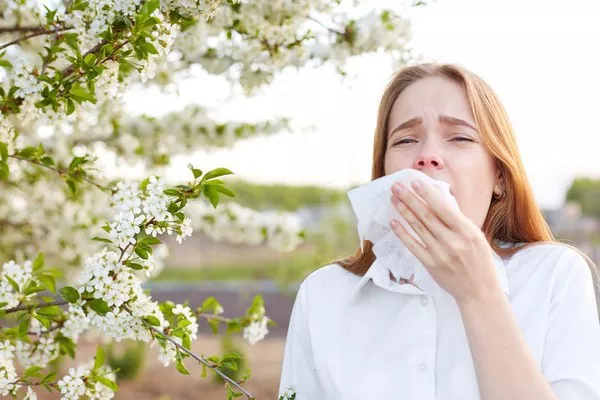Allergies are widespread and affect millions of people worldwide. An allergy occurs when the immune system overreacts to certain substances, known as allergens, that are harmless to most individuals. While various allergens can trigger allergic reactions, some allergies are more prevalent than others. In this article, we delve into the most common allergy, explore its causes, symptoms, risk factors, and potential management strategies to improve the quality of life for those affected.
Understanding Allergies
An allergy is an abnormal immune response that occurs when the body perceives an allergen as a threat, triggering a series of reactions aimed at neutralizing the perceived danger. Common allergens include pollen, dust mites, pet dander, mold spores, certain foods (e.g., peanuts, eggs, shellfish), insect stings, and medications.
The Most Common Allergy: Allergic Rhinitis (Hay Fever)
Allergic rhinitis, commonly known as hay fever, is the most prevalent type of allergy experienced by people around the world. It is estimated to affect up to 30% of the global population.
Causes of Allergic Rhinitis
Allergic rhinitis is primarily caused by the immune system’s response to airborne allergens, such as pollen from trees, grasses, and weeds. When an allergic individual inhales these allergens, the immune system releases chemicals, including histamine, which triggers the characteristic symptoms of allergic rhinitis.
Symptoms of Allergic Rhinitis
The symptoms of allergic rhinitis can vary in severity and can be categorized as follows:
1. Nasal Symptoms
Sneezing: Frequent and repetitive sneezing is one of the hallmark signs of allergic rhinitis.
Runny Nose (Rhinorrhea): Excess mucus production can cause a runny or drippy nose.
Nasal Congestion: Inflamed nasal passages can lead to a blocked or stuffy nose.
Itchy Nose: Many individuals with allergic rhinitis experience itchiness inside the nose.
2. Eye Symptoms
Watery Eyes: The eyes may become excessively watery due to the body’s attempt to flush out allergens.
Itchy Eyes: Allergic rhinitis can lead to persistent eye itching and discomfort.
Redness and Swelling: The eyes may appear red and swollen in response to allergen exposure.
3. Other Symptoms
Itchy Throat and Ears: Some individuals may experience itchiness in the throat and ears.
Fatigue: Constantly dealing with allergy symptoms can lead to fatigue and a general feeling of unwellness.
Seasonal vs. Perennial Allergic Rhinitis
Allergic rhinitis can be classified as either seasonal or perennial, depending on the triggers and the duration of symptoms.
1. Seasonal Allergic Rhinitis
Seasonal allergic rhinitis, as the name suggests, occurs during specific seasons when particular allergens are most abundant. For example, pollen allergies are more prevalent during spring and fall when trees and grasses release large amounts of pollen into the air.
2. Perennial Allergic Rhinitis
Perennial allergic rhinitis persists throughout the year because the allergens responsible are present all-year-round. Common triggers for perennial allergic rhinitis include dust mites, pet dander, mold spores, and cockroach particles.
Risk Factors for Allergic Rhinitis
Certain factors can increase an individual’s susceptibility to developing allergic rhinitis:
1. Family History
A family history of allergies, such as hay fever or asthma, can significantly elevate the risk of allergic rhinitis.
2. Environmental Exposures
Living in areas with high pollen counts or exposure to indoor allergens like dust mites and pet dander can contribute to the development of allergic rhinitis.
3. Age
Allergic rhinitis is more common in children and adolescents, although it can occur at any age.
4. Occupational Exposures
Certain occupations that involve exposure to allergens, such as farming or gardening, can increase the risk of developing allergic rhinitis.
Diagnosis and Management
1. Diagnosis
If allergic rhinitis is suspected, individuals should seek medical evaluation from an allergist or immunologist. The healthcare professional will take a detailed medical history and may perform allergy tests, such as skin prick tests or blood tests, to identify specific allergens triggering the symptoms.
2. Management
Allergen Avoidance
Avoiding exposure to known allergens is a key component of managing allergic rhinitis. Strategies may include staying indoors on high pollen days, using air purifiers, and frequently washing bedding to reduce dust mites.
Medications
Antihistamines: Over-the-counter or prescription antihistamines can help relieve symptoms like sneezing, itching, and a runny nose.
Nasal Corticosteroids: These prescription medications reduce inflammation in the nasal passages and can effectively manage nasal congestion and other symptoms.
Decongestants: Short-term use of decongestant sprays or pills can alleviate nasal congestion, but prolonged use should be avoided due to the risk of rebound congestion.
Allergy Immunotherapy (Allergy Shots): For severe or persistent allergic rhinitis, allergen immunotherapy may be recommended. This treatment involves gradually exposing the individual to allergens to build tolerance over time.
Conclusion
Allergic rhinitis, or hay fever, stands out as the most common allergy experienced by millions worldwide. Understanding the causes, symptoms, risk factors, and management strategies is essential for individuals to effectively cope with allergic rhinitis and improve their overall quality of life. For personalized guidance, individuals should consult healthcare professionals and allergists, who can offer tailored approaches to managing this prevalent allergy and reducing the impact of its symptoms. By raising awareness and implementing appropriate management strategies, we can help those affected lead a healthier and more comfortable life, free from the burdens of allergic rhinitis.


